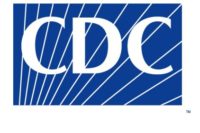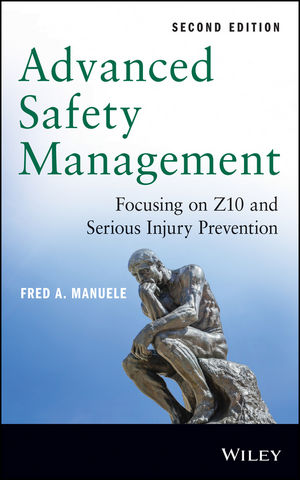NANCY SNYDERMAN: Dr. Frieden, you just alluded to sloppiness. Is there any common denominator as you look at this early as to whether your protocols for safety are antiquated or whether these are junior lab people who have -- don't have experience, or to the contrary, senior people who have just become lax after years and years of being in a lab?
TOM FRIEDEN: I think if we look at laboratory science overall, there's been a lot of change in recent decades. In fact, when I joined CDC in 1990, I did an investigation of laboratory cross-contamination in community hospitals and academic medical centers throughout New York City. And we found that about 3 percent of all cultures were cross-contaminated, which was really quite terrifying because it meant that somewhere in those laboratories, tuberculosis has been floating around. It had gone from one culture plate to another. Over the past couple of decades, we've implemented the Clinical Laboratory Improvement System, CLIS, and that has resulted in steady improvements in laboratory quality and safety in laboratories that test for human specimens. At CDC, we have laboratories that don't test for human specimens, but they also need to have quality management systems in place. The issue isn't about individuals doing the wrong thing. The issue is about systems that aren't reliably preventing this from happening. And that's what we will make sure to implement.
NANCY SNYDERMAN: And on a secondary note very quickly, the whole idea of keeping smallpox, keeping anthrax cultures, would you talk for a second about bioterrorism and why certain materials are kept at the CDC?
TOM FRIEDEN: We wish we didn't have to do research like this. But the fact is that anthrax has been used as a weapon, and there's a risk it will be used as a weapon. And that's why we do work to make sure that we could diagnose it effectively throughout the U.S., we do research to figure out how to diagnose it more rapidly. In fact, the project that led to the potential exposure was a project to try to figure out a quicker way to diagnose anthrax with a new and interesting technology. We do research to figure out how better to treat people if they're exposed and prevent it if they're exposed and how better to prevent it through vaccination. The fact is that an continues to occur in nature and that anthrax has been used as a weapon. So though we wish there's parts of the science that we work on weren't necessary, unfortunately, in the world we live in today, they are.
NANCY SNYDERMAN: Thank you.
JOHN ROBERTS: Everybody on the phone was asking two questions so i thought I might try to get a second one in. I just want to get a personal reaction here, Dr. Frieden. You and I have known each other for a long time. This is the Centers for Disease Control. As another caller said, this is the envy of the world. This is the preeminent infectious disease sleuthing agency. Books have been written. Movies have been made about this place saving the world. You talked about your personal reaction earlier. Let me get you to expand on that if I could. As to how you feel about this happening at this place.
TOM FRIEDEN: I will say that I’m just astonished that this could have happened here. We have such great scientists. When I joined CDC as director in 2002, one of the things that made the biggest impression on me was how wonderful our laboratories are. During H1N1 pandemic, this laboratory did phenomenal work sequencing specimens, figuring out where the virus was going. Our laboratories are core to our ability to protect Americans. Our laboratories are the reason we are the gold standard for not just infectious diseases but environmental health as well. And for this to happen and put our workers potentially at risk is totally unacceptable. So I’m upset. I’m angry. I've lost sleep over it, and I’m working around the clock to make sure we do everything possible to resolve it. On the phone?
OPERATOR: Thank you. Next question on the phone comes from Danny Al-Faruque with The Hill newspaper. You may ask your question.
DANNY AL-FARUQUE: Thank you very much. I have two quick questions. One, in both these cases, I wanted to understand how much -- and sorry, I’m talking about the cases of the anthrax and influenza case -- how much of it was just dumb luck that the spores were able to get out into the general public? And secondly, in both these cases, there seems to be a huge lag between when these events were found out and when they were reported. Is there some sort of -- when you talk about culture, is there some sort of culture of fear that people who worked at the CDC were afraid to tell upper management?
TOM FRIEDEN: Well, first off, to clarify a few things, there was no delay in the anthrax exposure incident when that was -- came to light, the same day I was notified, and we began our response. In the influenza episode, we will certainly try to understand what went into that delay because we think that's very unusual behavior for CDC and not acceptable behavior. In both incidents, there is no risk that agents were released outside of CDC. In terms of the influenza work, it was all done in a highly contained environment, both here and at the USDA laboratory, and our understanding is there is no risk of it having either exposed workers or gotten out into the community, and that's certainly the case with the anthrax episode as well. Next question on the phone.
OPERATOR: Next question comes from Eben Brown with Fox News Radio. Go ahead with your question.
EBEN BROWN: Thank you. Good afternoon, Dr. Frieden. H5N1, is this the same H5N1 that was commonly referred to as bird flu or avian flu?
TOM FRIEDEN: So there are multiple forms of avian flu, and this is one of them. There's also the avian flu that emerged in china a few years ago. That's a different form of avian flu. But this one has been around for about a decade, and it's one of the ones that does concern us because it can be quite deadly both for poultry and for people.
EBEN BROWN: Thank you very much.
TOM FRIEDEN: Next question on the phone?
OPERATOR: Our next question comes from Donald McNeil from the New York Times; you may ask your question.
DONALD MCNEIL: Thank you. I may have misunderstood something you said. Are you shutting down shipments out of any non-CDC BSL-3 or BSL-4 laboratories or are you asking any other federal agencies or university labs to shut down those kinds of shipments?
TOM FRIEDEN: No, the moratorium that we are implementing applies specifically to CDC. I've discussed this with both NIH and FDA leadership. Their issue had to do with inventory control and both NIH and FDA are doing comprehensive work to look at inventory control in all of their laboratory facilities to see if there are any other unexpected items out there.
DONALD MCNEIL:But there's no effort to extend it even by request to other agencies or to any private labs to make them look at their procedures before samples are shipped? I mean, this obviously is related to the gain of function work that's going on around the country.
TOM FRIEDEN: The broader issue -- and it's in our report that we released today -- the broader issue is we think there are lessons here for other laboratories. As we absorb those lessons and learn them, we will incorporate them into our regulatory function and send advice out to any laboratory working in BSL-3 or BSL-4 facilities about things like inactivation procedures. One of the things that we've learned in public health is in any procedure, there may be -- or process -- there may be certain points that are particularly high risk, critical control points. Inactivation, for example, is a critical control point within laboratory safety. And so we'll be looking at ways to have redundant systems to affect and improve this through our work. Our first effort is to understand fully what happened and remediate it here at CDC, but we are definitely looking at the implications for laboratories around the country and around the world. On the phone?
OPERATOR: Thank you. Next question comes from Lisa Schnirring from CIDRAP News. Go ahead with your question.
LISA SCHNIRRING: Hi. Thanks so much for all the details today. I just wanted to ask specifically about your flu lab. How is that affecting surveillance in the United States over the summer? I know that it's flu season in different parts of the world. I’m just -- it's said that the lab was closed for now until the investigation is complete. I was just wondering how that impacts the other things that you're doing.




